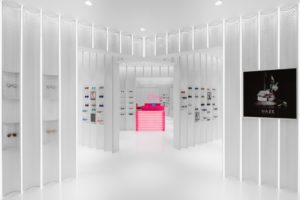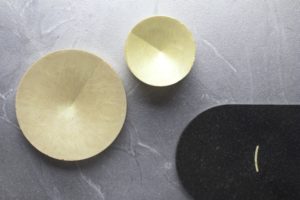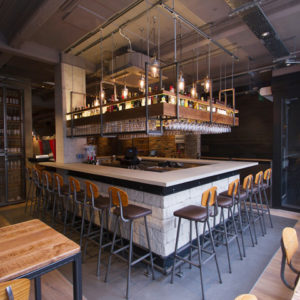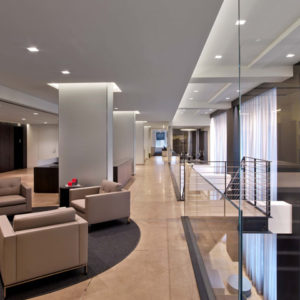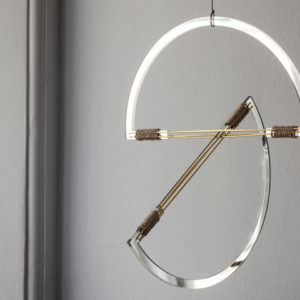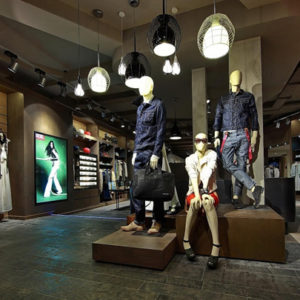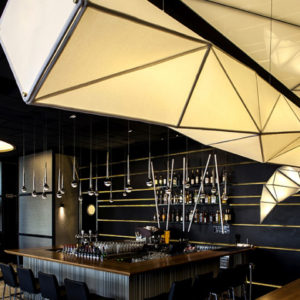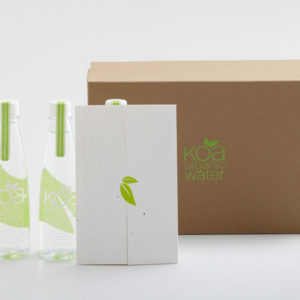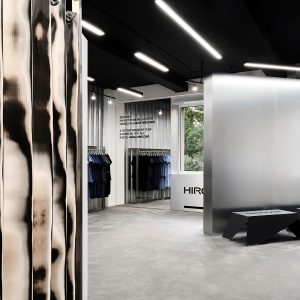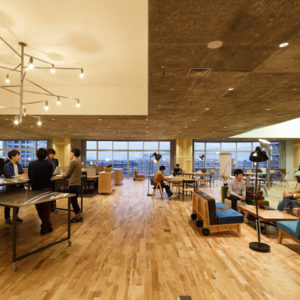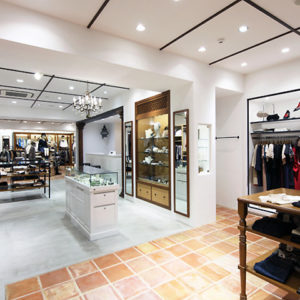


Dallah is a traditional coffee pot used to brew and serve “qahwat dallah”; an Arabic type of coffee specifically known to the Gulf or the Arabian Peninsula region. The process of serving the coffee, the ingredients with which it is made, and the vessels in which it is brewed and served are all part of the memorable customs of hospitality that Arabs take pride in. The ritual of serving qahwat dallah is about having and sharing moments with others; to slow down and savor the moment of being greeted and embraced. Served faster than an Italian espresso shot, the moment of savoring the coffee can span seconds or several long minutes depending on the occasion. In all cases the experience is always stout and memorable.
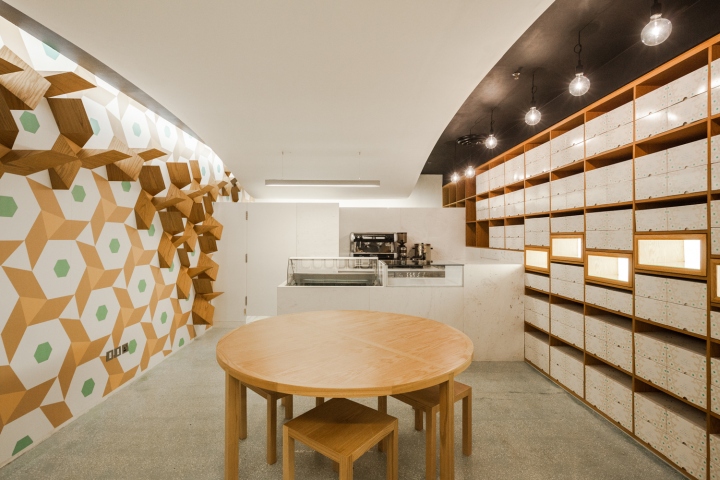
The making of the dallah always highlights the coalescing of the finest and most exotic ingredients an Arabic household can offer from spices and condiments that have been shipped and traded along the silk route such as cardamom, cloves and saffron. It is with which hosts illustrate their pride, exhilaration and gratitude to their visitors and passersby. Although known for its solid base, qahwat dallah has manifold shades, tones and tastes that reflect the time and place in which it was made in as it embraces the spice of the day or the ingredients en-route, and thus its composition is continually evolving and changing in different times and occasions.
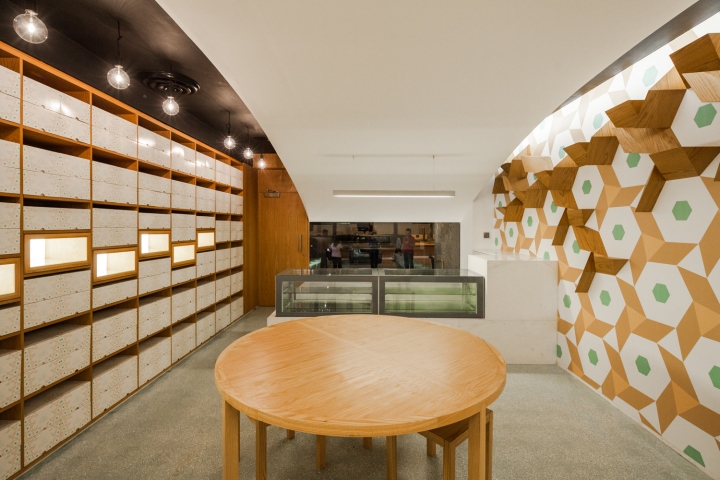
The vessel in which it is prepared and served takes on a very unique and delicate form. The spherical form tapers in at the center thus highlighting the bulging base and the elongated top. The most prominent features of the dallah include a gracefully curving handle, an ostentatious pinnacle on top of its cap, an arced long beak and intricately engraved ornamentations. Traditionally made out of glistening metals such as brass, steel, silver or gold, the dallah presents itself as an exquisite tool reflecting its holder’s cordiality and kindness and embodying his/her precious intentions of making people feel warm and welcomed.
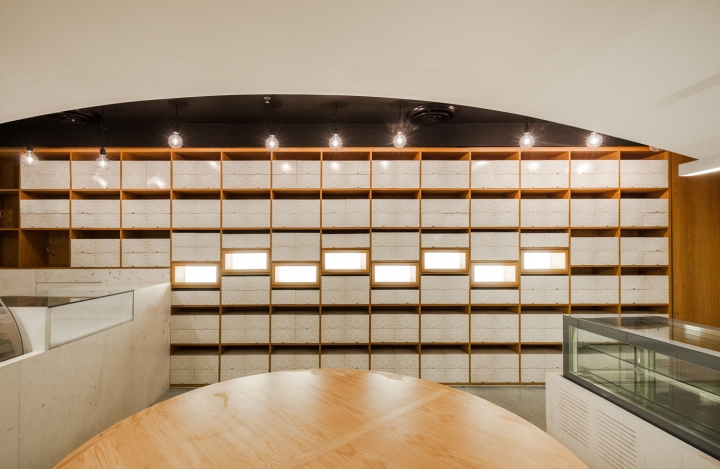
As a contemporary local Kuwaiti confectionary and coffee place, Dallah personifies the numerous pleasurable experiences that qahwat dallah embodies. Dallah as a brand prides itself on creating the most delectable traditional and contemporary delicacies utilizing the best of local and international ingredients. Stemming from the owners’ travels and interests in other cultures, Dallah offers a mélange of concoctions resembling the contemporary silk route of flavors.
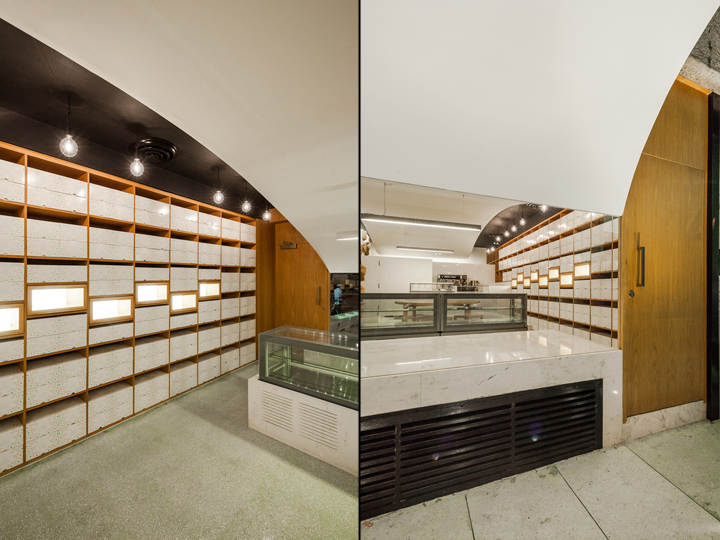
Reflecting the traditions inherent in the form and act of serving the dallah, the architects together with the brand developers aimed at creating a place that felt warm and welcoming, peaceful yet dynamic. The interior spatial organization of the shop and thus the customer experience are both governed by three main design elements; the display layout, the floating canopy, and the functional sidewalls. Each of the three elements pays a unique tribute to the traditions of the dallah.
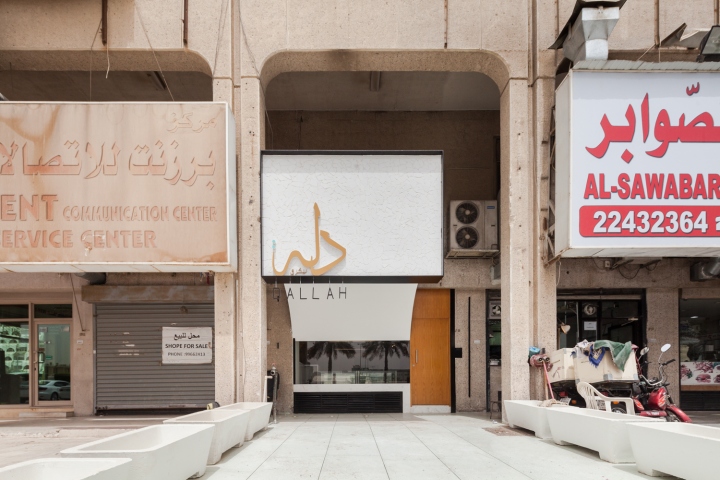
Layout
Taking into account the norms of the brand’s operations and contextual constraints, a dual display and service counter layout was chosen; one counter located at the entry of the shop acts as a vitrine that displays curated ever-changing operations of Dallah on to the street and at the same time acts as a buffer to the interior of the shop. Housing the heavier operations of Dallah, the other counter is placed on the opposite interior end of the shop and acts as a focal point that draws people inside. Together both counters define an interior “heart” of the space where a round communal seating table in placed.
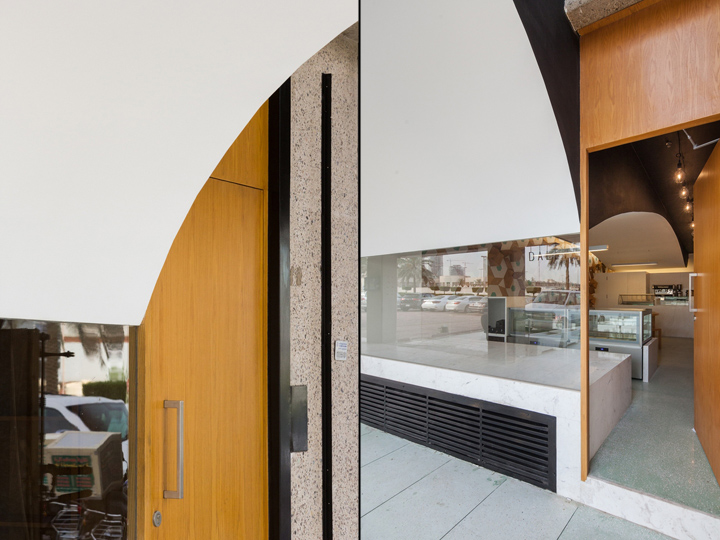
Canopy
An asymmetrical arched form was designed to further accentuate the warm central “heart” of the shop and at the same time to define the exterior vitrine and entry experience. The asymmetrical white arch’s springing line defines two very different situations on either end; a smaller arch that gives more of a human scale to the outdoor space just before entering the shop flanks one side of the springing line while a larger more fluid arch expands into the interior of the shop giving a sense of intimacy and openness to the indoors.
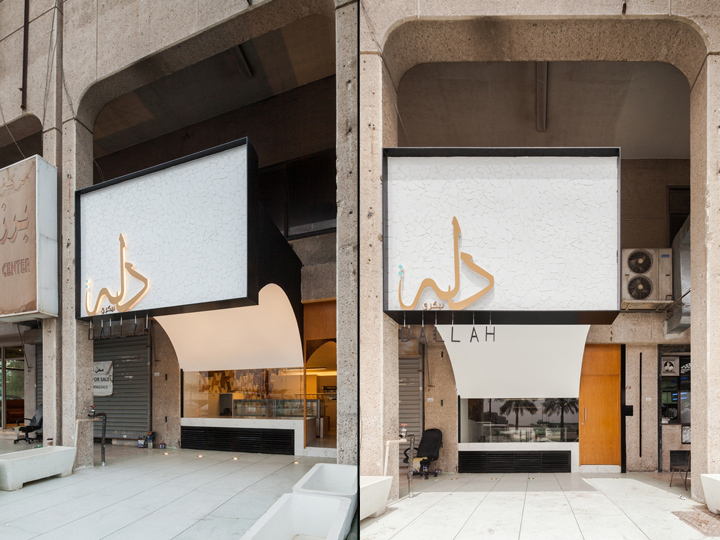
Sidewalls
Both functionality and form were taken into account in the design of the shop’s most prominent features; the sidewalls. While one wall pragmatically acts as a storage/display wall for all types of products, the opposite wall ostentatiously exemplifies the patterned brand by mimicking the geometric ornamentations found on traditional dallahs in three-dimensional form.
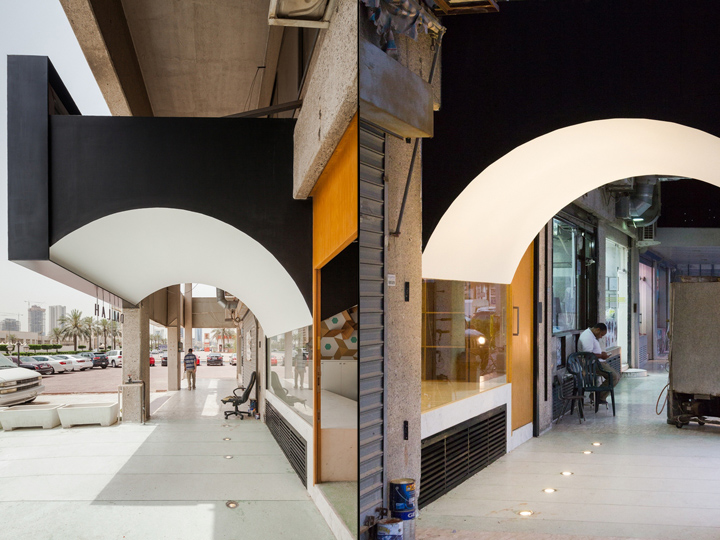
Materials
The materials chosen for Dallah represent both the color schemes of the brand of calm cool beiges, natural greens and sugar whites and the pragmatism seen in the baqala’s (local convenience stores) of past eras. A fresh green terrazzo floor, clean white marble counter tops and warm wooden floor-to-ceiling shelving together form the basic building blocks of the interior of the shop. The color saturated green floors and practical wooden wall shelving bring a sense of familiarity and warmth while the shiny white marble islands and countertops bring a sharp contemporaneous sense of refinement and sophistication.
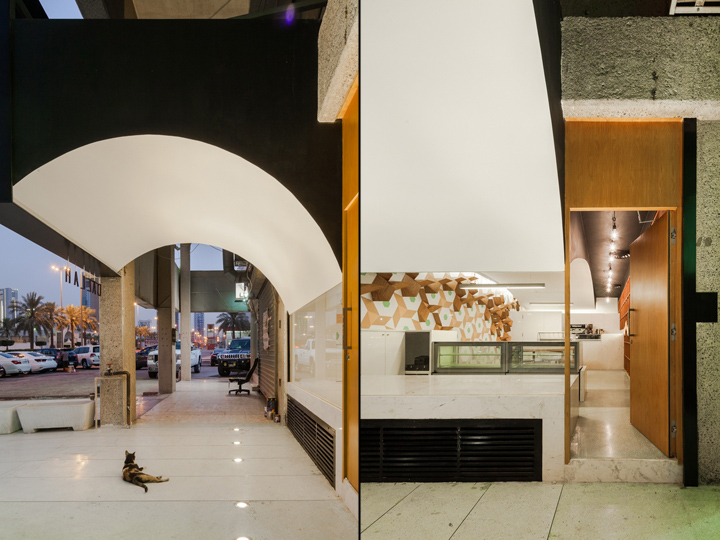
More important and most potent that any design factor in the store is the smell of the dallah. A smell that cursorily transports the visitor to another world; a world of delight and familiarity, of warmth and amiability. The store in its entirety rests as a mere vehicle that attempts to capture and humbly frame a moment and an experience that is inherently fleeting yet memorable.
Architects: Associated Architects Partnership
Collaborators: Telmo Rodrigues, Carla Barroso, Fabio Guimarães, Pedro Miranda, Nika Tudor, João Costa and Lionel Estriga.
Branding: Raw Design Studio
Photographs: Joao Morgado
http://www.archdaily.com/783993/dallah-associated-architects-partnership









